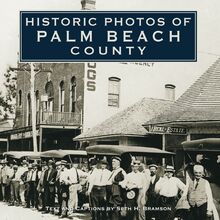-
 Univers
Univers
-
 Ebooks
Ebooks
-
 Livres audio
Livres audio
-
 Presse
Presse
-
 Podcasts
Podcasts
-
 BD
BD
-
 Documents
Documents
-
- Cours
- Révisions
- Ressources pédagogiques
- Sciences de l’éducation
- Manuels scolaires
- Langues
- Travaux de classe
- Annales de BEP
- Etudes supérieures
- Maternelle et primaire
- Fiches de lecture
- Orientation scolaire
- Méthodologie
- Corrigés de devoir
- Annales d’examens et concours
- Annales du bac
- Annales du brevet
- Rapports de stage
La lecture à portée de main
Vous pourrez modifier la taille du texte de cet ouvrage
Découvre YouScribe en t'inscrivant gratuitement
Je m'inscrisDécouvre YouScribe en t'inscrivant gratuitement
Je m'inscrisEn savoir plus
Vous pourrez modifier la taille du texte de cet ouvrage
En savoir plus

Description
Sujets
Informations
| Publié par | Turner Publishing Company |
| Date de parution | 01 mai 2007 |
| Nombre de lectures | 0 |
| EAN13 | 9781618586513 |
| Langue | English |
| Poids de l'ouvrage | 10 Mo |
Informations légales : prix de location à la page 0,1900€. Cette information est donnée uniquement à titre indicatif conformément à la législation en vigueur.
Extrait
HISTORIC PHOTOS OF
MADISON
T EXT AND C APTIONS BY D ONALD J. J OHNSON
Three horse-drawn sleighs can be seen in this 1898 photograph. The view looks down Wisconsin Avenue toward Madison s second Wisconsin Capitol. The automobile arrived in Madison a few short years later. Albert Zimmerman purchased a Locomobile steamer, which sold for about $600, in 1902, claiming it was the first permanent automobile in the capital city.
HISTORIC PHOTOS OF
MADISON
Turner Publishing Company
200 4th Avenue North Suite 950
Nashville, Tennessee 37219
(615) 255-2665
412 Broadway P.O. Box 3101
Paducah, Kentucky 42002-3101
(270) 443-0121
www.turnerpublishing.com
Historic Photos of Madison
Copyright 2007 Turner Publishing Company
All rights reserved.
This book or any part thereof may not be reproduced or transmitted in any form or by any means, electronic or mechanical, including photocopying, recording, or by any information storage and retrieval system, without permission in writing from the publisher.
Library of Congress Control Number: 2007923668
ISBN-13: 978-1-59652-335-7
ISBN: 1-59652-335-2
Printed in the United States of America
07 08 09 10 11 12 13 14-0 9 8 7 6 5 4 3 2 1
C ONTENTS
A CKNOWLEDGMENTS
P REFACE
A Y OUNG C ITY C OMES INTO I TS O WN (1860-1899)
G ROWING A MBITIONS (1900-1919)
P EACETIME C ONFLICT (1920-1939)
Y EARS OF C HANGE (1940-1970)
N OTES ON THE P HOTOGRAPHS
H. H. Bennett, one of the premier photographers of the era, took this group portrait of the 16th Wisconsin Volunteer Infantry, together with their wives and families, during their first reunion in Madison on September 7, 1887, twenty-two years after they were mustered out. Bennett, a veteran of the 12th Wisconsin Volunteer Infantry, may have included some members of his regiment as well.
A CKNOWLEDGMENTS
This volume, Historic Photos of Madison , is the result of the cooperation and efforts of many individuals and organizations. In particular, its creation would not be possible without the world-class resources of the Wisconsin Historical Society and the University of Wisconsin-Madison libraries, which include the University Archives. It is with great thanks that we acknowledge those valuable contributions.
This project represents countless hours of review and research. The researchers and writer have reviewed thousands of photographs. We greatly appreciate the generous assistance of the archives listed here, without whom this project could not have been completed.
The goal in publishing this work is to provide broader access to a set of extraordinary photographs. The aim is to inspire, provide perspective, and evoke insight that might assist officials and citizens, who together are responsible for determining Madison s future. In addition, the book seeks to preserve the past with respect and reverence.
With the exception of touching up imperfections caused by the vicissitudes of time and cropping where necessary, no other changes have been made. The focus and clarity of many images is limited to the technology of the day and the skill of the photographer who captured them.
We encourage readers to reflect as they explore Madison, stroll along its streets, or wander its neighborhoods. It is the publisher s hope that in making use of this work, longtime residents will learn something new and that new residents will gain a perspective on where Madison has been, so that each can contribute to its future.
-Todd Bottorff, Publisher
-------
This book is a tribute with love to my family and to Madison.
To my wife, Debra, and to my son, Jared, and to my father and mother, Rodney and Frances Johnson.
-Donald J. Johnson, Author
P REFACE
In less than thirty years, Madison will touch upon its 200th anniversary. The land that is now the home of the capital city of Wisconsin was surveyed in 1834. It was put up for sale in 1835 by the federal government, and the first road was built through the area by soldiers under the command of a future president, Zachary Taylor. Within two years after being surveyed, Madison appeared on paper when James Doty drew up the plat map for Madison, named for the former president and author of the U.S. Constitution; streets were named after Madison s colleagues, who worked with him in crafting the world s first blueprint for democracy.
Later that same year, the legislature of the newly created Wisconsin territory selected Madison, which had no permanent residents, as the territorial capital, replacing Belmont. The first settler arrived the next year in 1837. By 1848, barely fourteen years after being surveyed, the land hosted more than a thousand settlers and had since become the capital city of a newly christened state in the union.
The story that evolved since then is as intricate as any complex family history. The photographs selected for this volume after countless hours of work by researchers and editors constitute one of many possible albums showing that history. Although other collections could be equally interesting, none, including this one, can promise to be more than a series of glimpses into that past and what we think was true. We try to provide a balanced sample, drawing from the principal forces that affected people s lives-commerce, politics, religion, education, and transportation.
Many writers, too many to mention, have worked with great care to preserve parts, if not the whole, of the city s history in books, pamphlets, and web sites. Our most reliable sources can be found among the rich primary source documents and treasures in the Wisconsin Historical Society and in the state s many libraries. This book does not attempt to compete as a comprehensive historical record. For such accounts, both collective and personal, there are histories and daily stories by historians and journalists such as Stuart Levitan, Reuben Gold Thwaites, David Mollenhoff, William Wineke, Susan Lampert Smith, Frank Custer.
The inspiration for the book does, however, match their love for a place and for the people who make it unique-rich with history and diverse experiences-a home that few want to leave and to which many return. Like other families, we have argued fervently among ourselves about how we should care for our beloved Madison and what its future should hold. Future debates promise to be just as ardent. Will such discussions ever settle at an angle of repose as in the title from the Pulitzer Prize-winning novel by former Madisonian Wallace Stegner? Probably not soon. Although we can reflect, sometimes with awe and at other times with amusement, our story is yet still too young to look back for long. Perhaps our best tack is to remember what we hold dear about Madison and let that be our guide in building our future community.
- Donald J. Johnson
Part of a Labor Day parade featuring a float shaped like a boat turns off the Capitol Square in 1918. The photograph was taken by William Meuer, a well-known Madison photographer, who chronicled the famous and not-so-famous in Madison s history from the late 1800s through 1934. His collection of more than 28,000 black-and-white photographs is housed in the University Archives of the University of Wisconsin-Madison libraries. Topics range from faculty portraits, new scientific discoveries, athletics, students, governors of Wisconsin, and images of Madison.
A Y OUNG C ITY C OMES INTO I TS O WN
(1860-1899)
Madison was named for the Father of the United States Constitution and the fourth president of the United States. The man incorporated a belief in debate, the role of individual rights, and the importance of holding government accountable to its people as founding principles in this blueprint for democracy. In a distinction keeping with its prestigious namesake, even though it had no permanent residents, Madison was named the capital of the Wisconsin territory in 1836. Within two decades it had been incorporated as a city and boasted a population of about 11,000.
By 1860, however, the 1857 economic panic had taken its toll, and the population had dropped a few thousand. That was compounded by actions of the city council, through a series of bad decisions on spending and borrowing, that had left the city bankrupt.
In spite of this uneven start to the decade, the city would soon boast a new state capitol, the second in Madison and the third for the state, the start of its own Mansion Hill, its first suburb, and a first-class hotel.
During this last half of the nineteenth century, Madison saw rapid expansion of its role in commerce and tourism, where railroads, manufacturing, education, breweries, and religion became significant enterprises. By century s end, Madison had a population of nearly 20,000 and was deeply engaged in preserving the quality of life through city planning.
By then it had sent men off to the Civil War; those who survived returned as heroes. The Attic Angels had begun their philanthropic work, Madison was hosting the most successful Chautauqua in the West, and the city council had passed a resolution about affairs in faraway Ireland-the beginning of a long-standing tradition of righteous commentary from a municipality on national and international affairs.
These anecdotal pieces of history may not be significant as discrete events, but they represent themes in the character of a growing city. These civic roles continue to this day: Madisonians believe they should and must speak out on local, state, national, and international affairs.
As much by accident as by design, Madison became a community that recognized the individual citizen s unique place in the landscape, a perspective that fits its name.
The first Wisconsin Capitol constructed in Madison, visible in this 1861 photograph, sits at the top of State Street in this view from Bascom Hill on the University of Wisconsin campus.
In little more than a decade after its creation from wilderness in 1836, Madison had become a thriving small metropolis. The busy cor
-
 Univers
Univers
-
 Ebooks
Ebooks
-
 Livres audio
Livres audio
-
 Presse
Presse
-
 Podcasts
Podcasts
-
 BD
BD
-
 Documents
Documents
-
Jeunesse
-
Littérature
-
Ressources professionnelles
-
Santé et bien-être
-
Savoirs
-
Education
-
Loisirs et hobbies
-
Art, musique et cinéma
-
Actualité et débat de société
-
Jeunesse
-
Littérature
-
Ressources professionnelles
-
Santé et bien-être
-
Savoirs
-
Education
-
Loisirs et hobbies
-
Art, musique et cinéma
-
Actualité et débat de société
-
Actualités
-
Lifestyle
-
Presse jeunesse
-
Presse professionnelle
-
Pratique
-
Presse sportive
-
Presse internationale
-
Culture & Médias
-
Action et Aventures
-
Science-fiction et Fantasy
-
Société
-
Jeunesse
-
Littérature
-
Ressources professionnelles
-
Santé et bien-être
-
Savoirs
-
Education
-
Loisirs et hobbies
-
Art, musique et cinéma
-
Actualité et débat de société
- Cours
- Révisions
- Ressources pédagogiques
- Sciences de l’éducation
- Manuels scolaires
- Langues
- Travaux de classe
- Annales de BEP
- Etudes supérieures
- Maternelle et primaire
- Fiches de lecture
- Orientation scolaire
- Méthodologie
- Corrigés de devoir
- Annales d’examens et concours
- Annales du bac
- Annales du brevet
- Rapports de stage




















